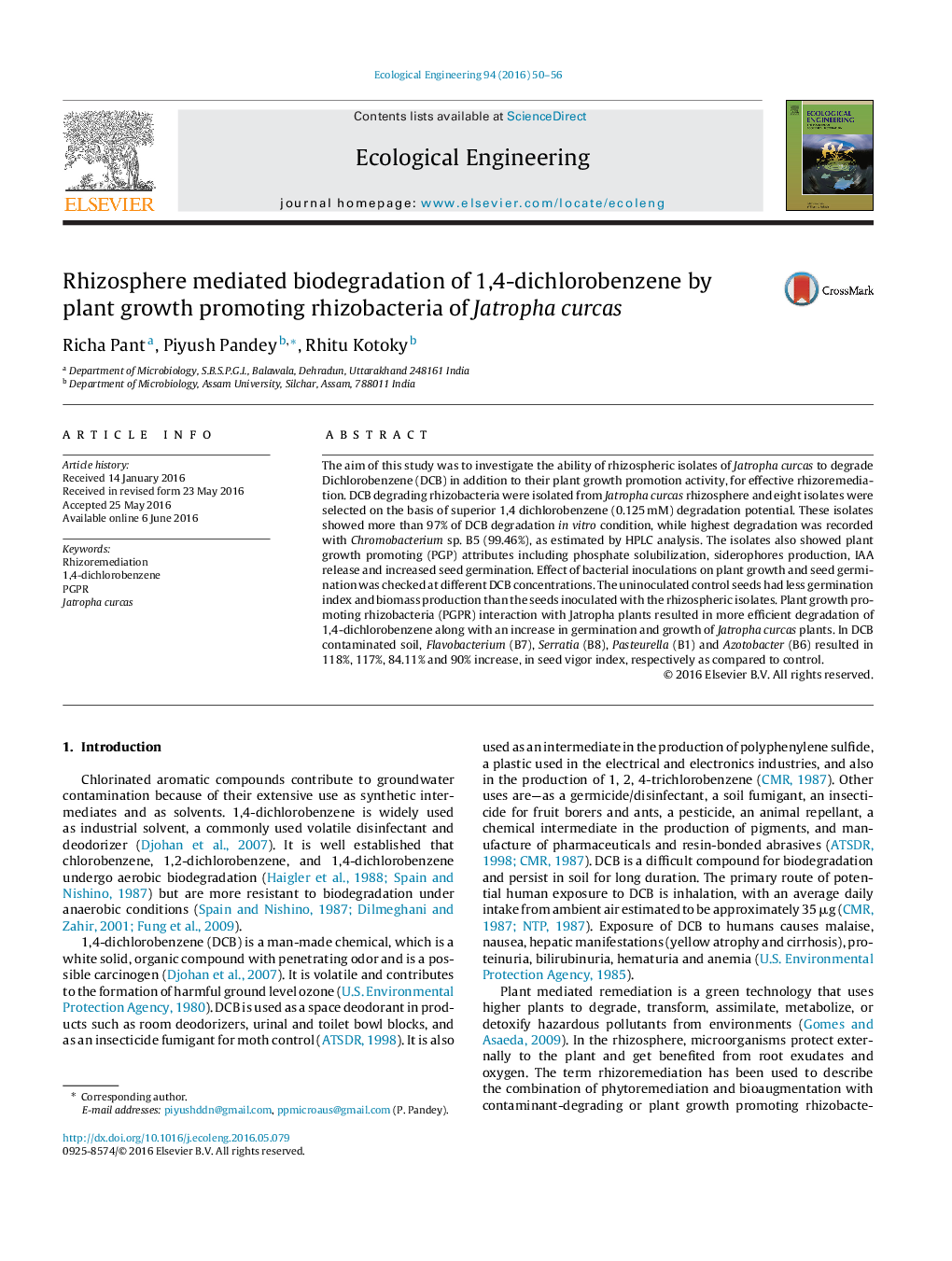| Article ID | Journal | Published Year | Pages | File Type |
|---|---|---|---|---|
| 4388530 | Ecological Engineering | 2016 | 7 Pages |
The aim of this study was to investigate the ability of rhizospheric isolates of Jatropha curcas to degrade Dichlorobenzene (DCB) in addition to their plant growth promotion activity, for effective rhizoremediation. DCB degrading rhizobacteria were isolated from Jatropha curcas rhizosphere and eight isolates were selected on the basis of superior 1,4 dichlorobenzene (0.125 mM) degradation potential. These isolates showed more than 97% of DCB degradation in vitro condition, while highest degradation was recorded with Chromobacterium sp. B5 (99.46%), as estimated by HPLC analysis. The isolates also showed plant growth promoting (PGP) attributes including phosphate solubilization, siderophores production, IAA release and increased seed germination. Effect of bacterial inoculations on plant growth and seed germination was checked at different DCB concentrations. The uninoculated control seeds had less germination index and biomass production than the seeds inoculated with the rhizospheric isolates. Plant growth promoting rhizobacteria (PGPR) interaction with Jatropha plants resulted in more efficient degradation of 1,4-dichlorobenzene along with an increase in germination and growth of Jatropha curcas plants. In DCB contaminated soil, Flavobacterium (B7), Serratia (B8), Pasteurella (B1) and Azotobacter (B6) resulted in 118%, 117%, 84.11% and 90% increase, in seed vigor index, respectively as compared to control.
